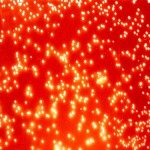Link to Pubmed [PMID] – 24554758
Microbiology (Reading, Engl.) 2014 May;160(Pt 5):962-9
Whooping cough is a vaccine-preventable disease presenting with epidemic cycles linked to natural and/or vaccine-driven evolution of the aetiological agent of the disease, Bordetella pertussis. Adenylate cyclase-haemolysin (AC-Hly) is a major toxin produced by this pathogen, which mediates macrophage apoptosis in vitro and in vivo. While current acellular pertussis vaccine (APV) formulations do not include AC-Hly, they all contain pertussis toxin and can comprise filamentous haemagglutinin (FHA), which interacts with AC-Hly, and pertactin (PRN), which has been hypothesized also to interact with AC-Hly. We aimed to study the capacity of specific antibodies to inhibit the in vitro B. pertussis AC-Hly-mediated cytotoxicity of J774A.1 murine macrophages in a background of a changing bacterial population. We demonstrate that: (i) clinical isolates of different types or PRN phenotype are all cytotoxic and lethal in the mouse model of respiratory infection; (ii) lack of PRN production does not impact AC-Hly-related phenotypes; (iii) anti-AC-Hly antibodies inhibit cell lysis whatever the phenotype of the isolate, while anti-PRN antibodies significantly inhibit cell lysis provided the isolate produces this antigen, which might be relevant in vivo for APV-induced immunity; and (iv) anti-FHA antibodies only inhibit lysis induced by isolates collected in 2012, maybe indicating specific characteristics of epidemic lineages of B. pertussis.

